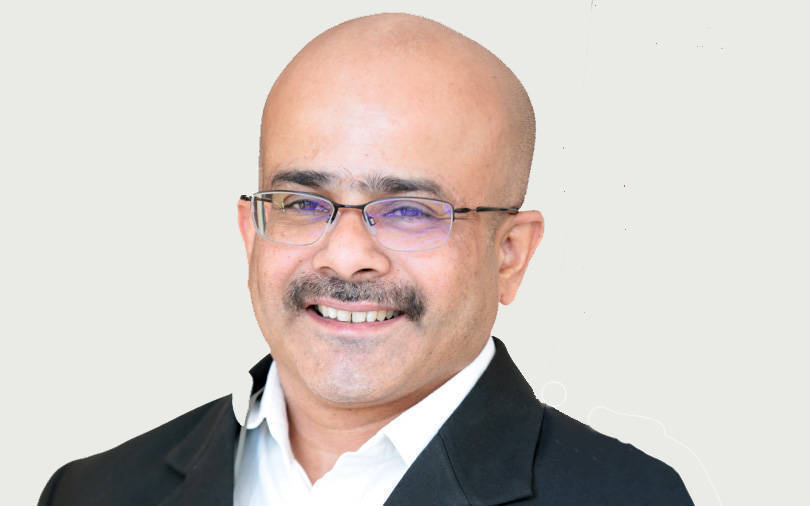
How this bootstrapped startup is making a dent in India’s telematics market


About seven-odd years ago, Vadiraj S Katti got an early taste of failure when the Ministry of Defence rejected his attempt to bid for a contract. His startup, iTriangle Infotech, didn’t have prior implementation experience, mandatory for bidding for the contract to install telematics hardware and software solutions in military trucks.
Katti, however, persisted. He convinced the ministry to relax the clause and consider his indigenously developed product.
To his pleasant surprise, the effort paid off. The ministry asked iTriangle to develop a proof-of-concept (PoC). Satisfied with how the PoC was executed, the ministry subsequently awarded the contract to iTriangle, allowing Katti’s firm to install its products in 78 of its trucks. The contract was worth about Rs 18 lakh.

The Bengaluru-based startup, which provides cloud-based vehicle telematics software solutions and also manufactures its own Internet-of-Things (IoT)-based tracking devices, has come a long way since then.
Defence contracts now account for a tiny 2% of its revenues, which stood at Rs 50 crore for the financial year 2017-18. It makes its money from products and solutions sold to ride-hailing platforms such as Ola and Uber, several state bus transport companies, technology firms such as Infosys and Tech Mahindra and oil and gas major Indian Oil. Its solutions are also used extensively by mining and logistics companies.
In all, it now counts 200 enterprise customers who use its solutions to track goods or assets on the move or to keep tabs on data related to speed, driver behaviour and the conditions of vehicles.

The company claims to be profitable and has never raised external equity funding, though it has taken multiple working capital loans over time.
Solving local problems
When Katti and co-founder Kiran AR started iTriangle backed in 2009, the local ecosystem for telematics—a technology that collects and sends data on vehicles in real-time to a centralised location—was still nascent.

Prior to setting up iTriangle, Katti had extensive experience in India’s telecom sector. He was earlier the chief executive at Manipal Enterprises, which made iON mobile phones. Before that, he worked at Vector Telesolutions, a distributor of mobile phones. Co-founder Kiran was a software engineer at industrial manufacturer Siemens.
“After two decades of working with telecom companies and expertise in embedded systems, telematics was a natural choice to start up. We found that there was a huge opportunity for indigenously developed technology that can be used without the fear of getting the data sent to foreign countries,” Katti said.
Initially, Katti and his team imported the hardware parts for the telematics from China while developing the software in-house. “However, the quality was never satisfactory and our own developers had quality issues during software development because of the inconsistency," Katti said.

As a result, the company started to make its own hardware locally but this decision proved to be arduous and time-consuming.
The company's product was not market-ready till 2013 and its two pilots failed. Katti's family, friends and relatives invested a total of Rs 4 crore, three-fourths of which was spent on research and development.
“There was no supply chain for building hardware in India. We toyed with several components and were trying to figure out cost optimisation without compromising on operational quality. Also, we needed the hardware to work smoothly with the software. The large chip companies did not believe in our ability to develop hardware,” Katti said.

However, Katti and his team overcame the odds. Over the past five years, the company has created more than 2.5 lakh devices. The company also benefited from mentor engineers from the Indian Institute of Science in Bengaluru.
The next phase
iTriangle now offers its products as a software-as-a-service (SaaS) solution as the cloud requires minimal upfront investment. To achieve this, the firm is targeting the small and medium enterprise (SME) market.

The firm uses Oracle to deliver cloud solutions to its customers. But if a client wants to host its data on its preferred data centre, be it Microsoft Azure, Amazon Web Services or Google, iTriangle gives them that leeway.
iTriangle plans to expand to overseas markets, initially focussing on Southeast Asia and the Middle East market. Katti remains unfazed by this challenge.
“The beginning of the journey was lonely. We had the conviction,” he said. According to him, the global telematics market is expected to be $300 billion in 2022.
iTriangle, which currently employs 160 people, kept its staff thin through its early days to minimise costs. Its competitors include IT consulting firm KPIT, car diagnostics firm Minda iConnect, fleet management solutions firm Infotrack Telematics and GPS navigation provider MapMyIndia among the major players.
